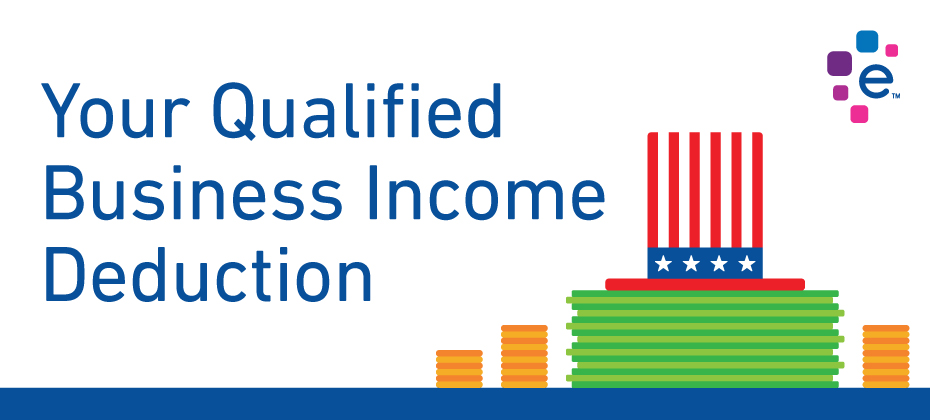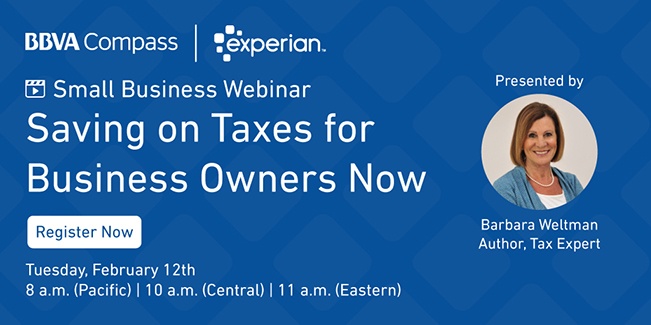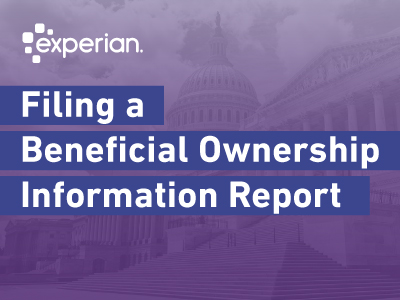
Barbara Weltman
The IRS recently released more details about the Qualified Business Income Deduction, a new tax regulation that will impact small business owners. In this guest post, leading author and tax expert, Barbara Weltman shares first impressions on the regulation and potential impact for small businesses. You can find more blogs by Barbara on her blog Big Ideas for Small Business.
If you own a pass-through entity—sole proprietorship, partnership, limited liability company, or S corporation—you may be eligible for a new tax deduction. It is a significant tax reduction for business owners who qualify for it. But it isn’t simple because numerous limitations and acronyms come into play. The following is a brief introduction to the qualified business income deduction.
Overview
Referred to as the Section 199A deduction (the section in the Tax Code for it), the qualified business income (QBI) deduction runs from 2018 through 2025. You don’t have to expend any capital or take any special action; if you qualify for the deduction you get it. But the bad news is that there’s new terminology and calculations for limitations on the deduction which can be daunting.
The deduction does not reduce your business income and does not reduce your net earnings for self-employment tax if you’re self-employed. It does not reduce your gross income as does other business-related expenses, such as retirement plan contributions on your behalf, health insurance for yourself, and one-half of self-employment tax. The deduction comes off your adjusted gross income in the same way as the standard deduction or itemized deductions (there’s a special line for the QBI deduction on Form 1040), effectively reducing the tax rate you pay on your business profits. For example, if you are in the 32% tax bracket and qualify for the deduction without any limitations, the effective tax rate on your QBI becomes 25.6%.
What is QBI?
The deduction is based on the amount of your qualified business income. This is essentially your profits from a pass-through trade or business. However, QBI does not include certain items that you do factor into your net income for determining what you pay income tax on. Items excluded from QBI are:
- Capital gains and losses (including Section 1231 gains)
- Dividend income
- Interest income
- Reasonable compensation paid to S corporation owner-employees
- Guaranteed payments to partners for services rendered to the business
What is the QBI deduction?
If your taxable income is no more than $157,500 if single or $315,000 if married filing jointly, then your deduction is 20% of QBI. The deduction cannot exceed your taxable income minus any capital gains. For example, if you are a sole proprietor with a net profit of $90,000 (and no excluded items) on your Schedule C and your taxable income is $100,000 (no capital gains), your QBI deduction is $18,000 ($90,000 x 20%).
What limitations apply?
Once your taxable income is higher than the taxable income threshold for your filing status, then various limitations come into play. The exact formula for determining the deduction (there are special rules for income from REITs and publicly traded partnerships that is not explained here) is the lesser of:
- 20% of your QBI, or
- The greater of (a) 50% of W-2 wages or (b) the sum of 25% of W-2 wages plus 2.5% of the unadjusted basis immediately after acquisition (UBIA) of qualified property.
In addition to the W-2 limitation and the property limitation, there is a special limitation for a specified service trade or business (defined below). Only a percentage of QBI, W-2 wages, and the unadjusted basis of property can be taken into account. Once an owner of a specified service trade or business has taxable income over $207,500 if single, or $415,000 if married filing jointly, then this limitation means no deduction can be claimed.
What are the special terms to know?
There are a number of special terms you need to know in order to figure the deduction:
W-2 wages. These are wages reported on W-2s to employees (including wages to S corporation owner-employees), plus elective deferral contributions to 401(k)s and similar plans and certain deferred compensation.
Specified service trades or businesses (SSTBs). These are any trade or business involving the performance of services in the fields of health, law, accounting, actuarial science, performing arts, consulting, athletics, financial services, brokerage services, or any trade or business where the principal asset of such trade or business is the reputation or skill of one or more of its employees or owners (a catchall category). Architecture and engineering are specifically not included in the list of fields.
Fortunately, the IRS has narrowly construed the meaning of the catchall category so that the skill or reputation of an owner will be an SSTB only if the person receives payment for endorsing products or services, licensing the taxpayer’s images, or receiving fees for media appearances. For instance, a chef who owns restaurants and also endorses a line of cookware, only the income from the endorsement will be treated as an SSBT; the income from the restaurants won’t be tainted and subject to the SSBT limitation.
Unadjusted basis immediately after acquisition (UBIA) of qualified property. This is essentially the cost of depreciable tangible property as of the date it’s placed in service. So if your sole proprietorship buys a $10,000 machine and begins to use it on March, 1, 2018, you have UBIA of $10,000, even if you write-off the entire cost on your 2018 return.
Conclusion
If you think the QBI deduction sounds complicated, then you are correct. Fortunately, the actual computation of the deduction is done automatically by software. The important concepts to understand are the overall landscape of the deduction and the new terms that come into play. An upcoming post will provide more guidance on grouping and splitting businesses and other aspects of this complicated but very important deduction. Stay tuned!


